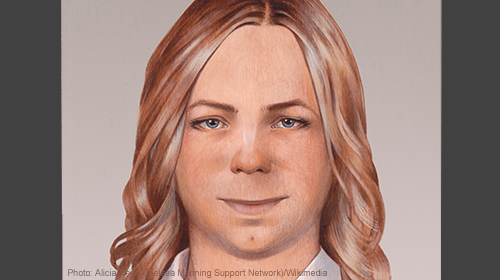
From inside the United States Disciplinary Barracks at Fort Leavenworth, Kansas, where she is serving a 35-year prison sentence, that is precisely what convicted Wikileaker Chelsea Manning has been doing – fighting for her existence.
Since first being diagnosed with gender dysphoria in 2010, Chelsea has struggled to be recognized and affirmed by the government, the public, and even some of her supporters, as Chelsea.
In a December op-ed published in the Guardian, she reflected:
We should all have the absolute and inalienable right to define ourselves, in our own terms and in our own languages, and to be able to express our identity and perspectives without fear of consequences and retribution. We should all be able to live as human beings – and to be recognized as such by the societies we live in.
This month, after a year and a half of fighting, including filing over two-dozen complaints, numerous formal grievances, a demand letter, and a federal lawsuit filed by the ACLU, Chelsea Manning finally received some affirmation of her humanity. On February 11, she began hormone treatment for her diagnosed gender dysphoria.
But even with this victory, Chelsea's fight continues.
The government is refusing to let Chelsea grow her hair as other female prisoners are permitted to do. Instead it is forcing her to keep an almost shaved head in accordance with male hair standards.
Meanwhile, in her criminal appeal, the government has refused to honor Chelsea's female identity and is fighting to use male pronouns and her former name in the legal papers for that case – a clear signal that they seek to further dehumanize her as she fights for her freedom. Around the country, countless other transgender women and men in prisons, jails, and immigration detention centers are struggling to be heard, to receive treatment, and to survive unbearable conditions. In other words: to simply exist.
This last week, the Southern Poverty Law Center sued the Georgia Department of Corrections on behalf of Ashley Diamond, a transgender woman who has been denied the medically necessary hormone treatment that she relied on for 17 years prior to her incarceration. In response to her pleas for treatment, Georgia prison officials mocked Ashley calling her a "he-she-thing" and ridiculing her health and safety needs.
From prison, Ashely writes: "It is amazing how a minor brush with the law has turned into a death sentence. This is about more than just hormone treatment. This is about gross human rights violations. Three years of torture is enough."
Indeed. Three days would be enough, three years is nightmare.
Across the political spectrum, people denounce the worth of trans people to receive the basic medical care we need. Television shows mock our existence and even in the wake of tragedy, media outlets think it permissible to erase our core humanity by refusing to honor our lives and genders in death.
As Ohio-based trans activist Cherno Biko explained:
Our fight is not for equality, it's for liberation and survival. Our bodies are being criminalized and policed to the point of extinction. It is crucial that we channel our energy and resources to our communities' most vulnerable.
While we mourn the many trans women we have lost this year, we must also stand with those trans people living under unbearably violent conditions. Exposed to unthinkable deprivations and degradation, our incarcerated trans brothers and sisters are everyday defending their right to exist.
What an incredibly modest, yet truly brave and resilient demand. Until no more trans people are subjected to the fear of death for being who they are, fighting for trans survival in and out of prisons is our duty and privilege.
From Chelsea to Ashley to the countless whose names we do not know, we see you, we defend you, and we support you.
Learn more about transgender rights and other civil liberty issues: Sign up for breaking news alerts, follow us on Twitter, and like us on Facebook.


